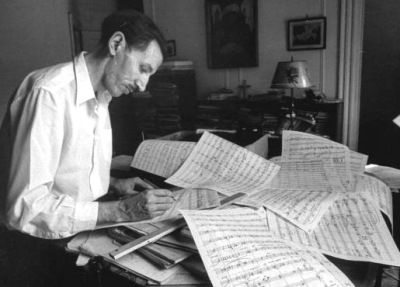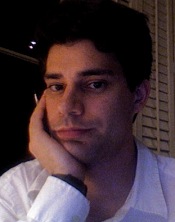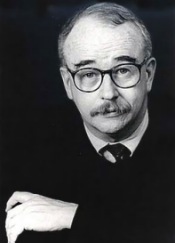 Y’all know the song. “Down. Town. Galen Brown… Meaner than a–” Galen’s meaner than a… um… he’s meaner than a Boobah. Yes, Galen is meaner than a Boobah. As you’ll see from his incendiary responses below.
Y’all know the song. “Down. Town. Galen Brown… Meaner than a–” Galen’s meaner than a… um… he’s meaner than a Boobah. Yes, Galen is meaner than a Boobah. As you’ll see from his incendiary responses below.
Did you learn anything in music school? Or does the phrase “circle of fifths” mean nothing to you?
Yes. Actually, the worst music theory teacher I ever had managed to teach me that the only legitimate chord progressions are derived from the circle of fifths, which of course isn’t true. That was in undergrad, though. In conservatory I learned that homework generally doesn’t have to be handed in on time
What’s your favorite “bad” piece of music? And briefly justify your crappy taste.
I like plenty of music that other people think is bad, although I won’t agree that it is in fact bad. I’m hard pressed to name a favorite, because there are so many wonderful examples. Recently, for instance, I became a fan of Katy Perry’s “I Kissed a Girl and I Liked it.” I even recorded a cover version (unless you’re with RIAA, in which case I totally found this on the internet by accident). I think the video provides all the justification required.
Your five-composition-long playlist for Schoenberg would contain:
Laibach’s “Let It Be” album
Skinny Puppy’s “Last Rights” album
Steve Reich’s “Electric Counterpoint”
David Lang’s “Men”
Michael Gordon’s “Trance”
Frederick Rzewski’s “The People United WIll Never Be Defeated”
Congress calls on you to draw up a bailout plan for contemporary music! What do you do?
Establish a slush fund for commissioning composers and bribing orchestra music directors to play the commissioned works. Establish an MTV style contemporary music cable channel. And there are some people I’d like to send to Gitmo, but I’ll keep that list to myself.

 We continue with
We continue with 
 Google‘s latest coup is the
Google‘s latest coup is the  The
The 
 Rodney Lister
Rodney Lister